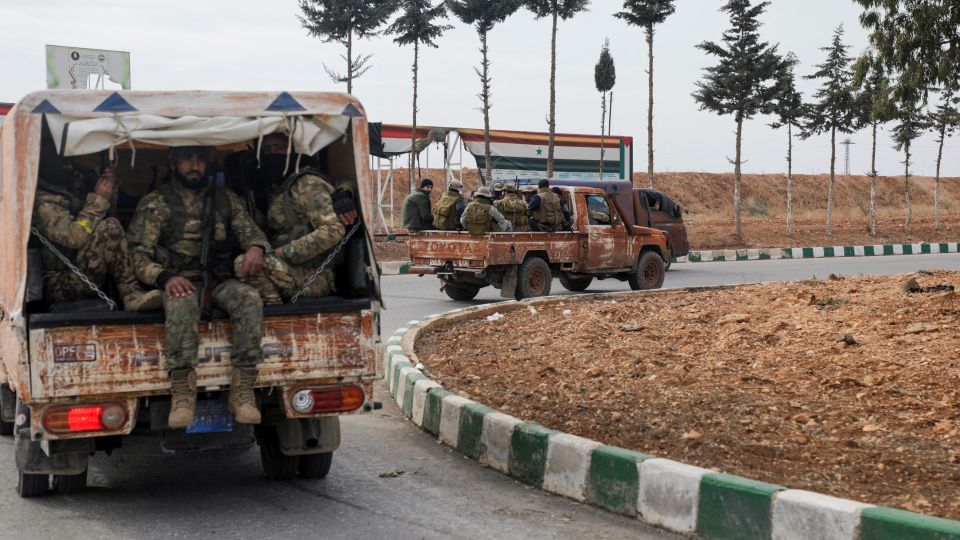In recent developments, officials in the Biden administration are monitoring a rapid advance of Syrian rebel forces that could potentially signal the imminent collapse of Bashar al-Assad’s regime, as indicated by several U.S. sources. This situation marks a dramatic and swift evolution in the Syrian conflict, which has been at a relative standstill for many years. While officials caution that no formal assessment has been completed regarding Assad’s fate and perspectives are varied, there seems to be a growing consensus that the possibility of his regime falling is becoming increasingly likely. A senior U.S. official noted that the rebels might be able to dismantle Assad’s grip on power as early as next weekend unless there is a well-organized coup or significant reorganization on the regime’s part. However, given Assad’s history of clamping down on potential rivals, such scenarios seem less probable.
The rebel forces have made significant strides in recent weeks, capitalizing on the retreat of government troops in key cities such as Aleppo, Idlib, and Hama, which have lacked strong regime backing. As these rebel advances continue, the race toward the capital city of Damascus intensifies, with Homs next in line for potential takeover. The speed at which the regime has faltered has surprised U.S. intelligence, which has previously misinterpreted the resilience of regimes in conflict zones, such as the outcomes in Afghanistan and Ukraine. This misjudgment has led to a broader evaluation of U.S. intelligence approaches regarding foreign military capabilities and morale.
White House national security adviser Jake Sullivan acknowledged the complexities of the situation, asserting that the U.S. will not engage in the civil war directly but will focus on safeguarding national interests, particularly concerning the resurgence of ISIS. As Syria faces a new flare-up of hostilities, the long-standing civil war, which began with a pro-democracy uprising in 2011, has resulted in the deaths of over 300,000 civilians and the displacement of millions. Leading the current rebel efforts is Hayat Tahrir al-Sham (HTS), a group previously linked to al-Qaeda and designated a terrorist organization by the U.S. government, raising concerns regarding their long-term objectives even as they oppose the Assad regime.
Concurrently, the traditional backers of Assad, including Iran and Russia, appear distracted by conflicts elsewhere, such as Russia’s war in Ukraine and Iran’s recent losses due to Israeli military actions. This diversion could provide the rebels an opportunity to capitalize on the weakening of Assad’s support network. The U.S. Pentagon has currently opted not to alter its military posture in Syria, with approximately 900 troops stationed there, though it is taking precautions to ensure their safety amid the evolving conflict. The U.S. has consistently collaborated with the Kurdish-led Syrian Democratic Forces in anti-ISIS operations, although direct communication with HTS has been avoided due to its classification as a terrorist group.
The Biden administration expresses concern over the fate of Assad’s chemical weapons stockpiles, believed to include hazardous substances like chlorine and sarin, which were infamously deployed against opposition areas. Additionally, uncertainties remain regarding where Assad might flee if his regime were to fall, with potential refuge offered by allies in Moscow or Tehran. The future of the conflict hinges on whether the rebels will extend their focus to capture key strongholds such as Latakia, an area significant to the Alawite community to which Assad belongs.
The implications of a regime change in Syria come at a critical juncture for the United States, particularly as President Joe Biden approaches the transfer of power to President-elect Donald Trump. Trump has openly advocated for a hands-off approach to Syria, emphasizing a reluctance to intervene further in the conflict. This stance reflects a desire to avoid the complications of being drawn deeper into Syria’s multifaceted struggles. Concerns are also raised about the stability of the region, particularly the status of ISIS prisoners currently held in U.S. custody, as Senate Republican Lindsey Graham highlighted the risks posed to U.S. troops should the Syrian government collapse entirely. These dynamics demonstrate the intricate and often unpredictable nature of geopolitical engagements in conflict areas.

